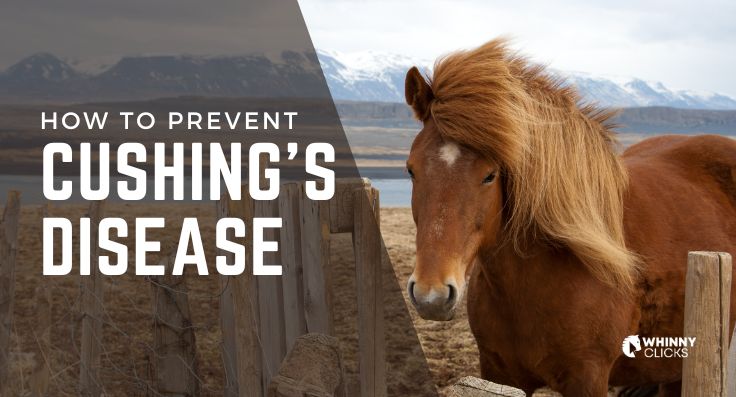How to Prevent Cushing’s Disease in Horses
TLDR
Cushing’s disease, or PPID, is a common endocrine disorder in horses. Preventing it involves regular veterinary check-ups, balanced nutrition, weight management, stress reduction, and proper parasite control. Providing a low-stress environment, regular dental care, and monitoring sugar intake are also crucial. By implementing these preventive measures, horse owners can reduce the risk and impact of Cushing’s disease, promoting overall equine health and well-being.
Understanding Cushing’s Disease
Cushing’s disease is a chronic and progressive condition caused by dysfunction of the pituitary gland. The pituitary gland, located at the base of the brain, produces hormones that regulate various bodily functions. In horses with Cushing’s, an overgrowth of the pituitary pars intermedia cells leads to excessive secretion of certain hormones, particularly adrenocorticotropic hormone (ACTH).
Preventive Measures for Cushing’s Disease
- Regular Veterinary Examinations: Routine veterinary check-ups play a crucial role in detecting early signs of Cushing’s disease. By monitoring the horse’s overall health, assessing hormone levels, and performing necessary diagnostic tests, veterinarians can identify the disease in its early stages and initiate appropriate treatment or preventive measures promptly.
- Proper Nutrition: A balanced diet is essential for maintaining optimal equine health and minimizing the risk of developing Cushing’s disease. Focus on providing a diet rich in high-quality forage, such as grass hay, to support digestive health. Limit the intake of high-sugar feeds, as excessive sugar and starch consumption can contribute to hormonal imbalances. Work with a veterinarian or equine nutritionist to create a suitable diet plan for your horse’s specific needs.
- Weight Management: Maintaining a healthy body weight is crucial in preventing Cushing’s disease. Obesity is known to exacerbate the condition and increase the risk of complications. Regular exercise and controlled calorie intake can help horses maintain an appropriate weight, reducing the strain on their endocrine system and overall health.
- Environmental Management: Creating a low-stress environment is beneficial for all horses, but it is particularly important for those at risk of Cushing’s disease. Minimize exposure to stressful situations, such as sudden changes in routine, overcrowding, and inadequate turnout. Promote a natural day-night cycle by ensuring access to appropriate shelter and turning out horses for a sufficient amount of time during daylight hours.
- Parasite Control: Parasite infestations can weaken a horse’s immune system and potentially contribute to the development or progression of Cushing’s disease. Implement a comprehensive parasite control program tailored to your horse’s needs. Regular fecal egg counts and deworming protocols, as recommended by your veterinarian, are essential in maintaining optimal intestinal health.
- Regular Dental Care: Proper dental care is essential for overall equine health and can indirectly contribute to the prevention of Cushing’s disease. Regular dental examinations and floating (smoothing sharp tooth edges) help maintain efficient chewing and digestion, reducing the risk of impaction colic and other digestive disturbances.
- Stress Reduction: Minimizing stress in a horse’s daily life is essential for preventing and managing Cushing’s disease. Provide companionship through suitable socialization and herd interactions, as isolation and loneliness can contribute to stress. Additionally, consider implementing stress-reducing techniques such as massage, acupuncture, or appropriate turnout schedules to promote relaxation and well-being.
The Bottom Line
Preventing Cushing’s disease in horses requires a multifaceted approach that encompasses regular veterinary care, appropriate nutrition, weight management, environmental considerations, parasite control, dental care, and stress reduction. By implementing these preventive measures, horse owners and veterinarians can work together to reduce the risk and impact of this debilitating endocrine disorder, promoting a healthier and happier equine population.


